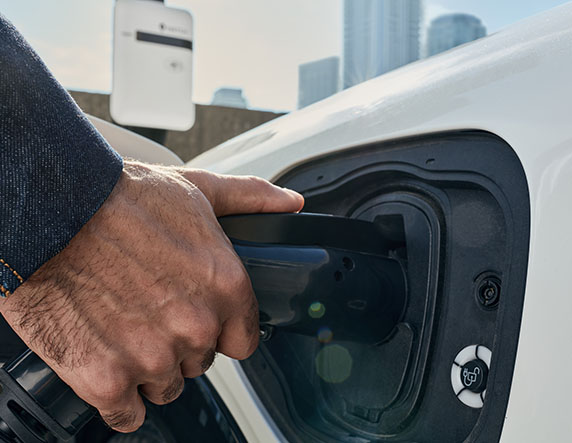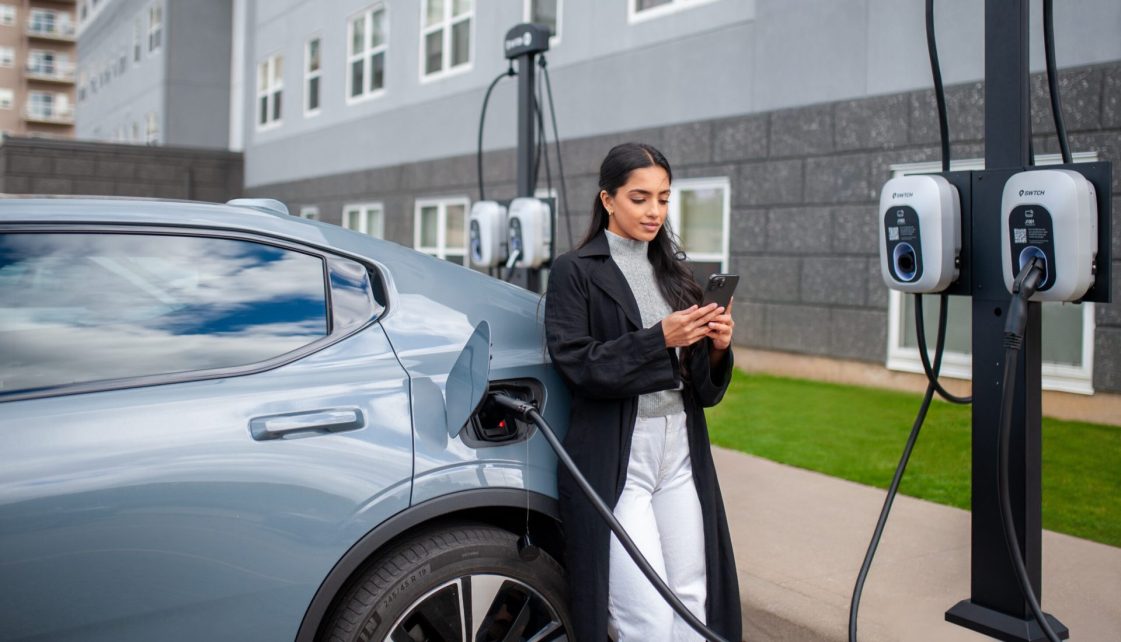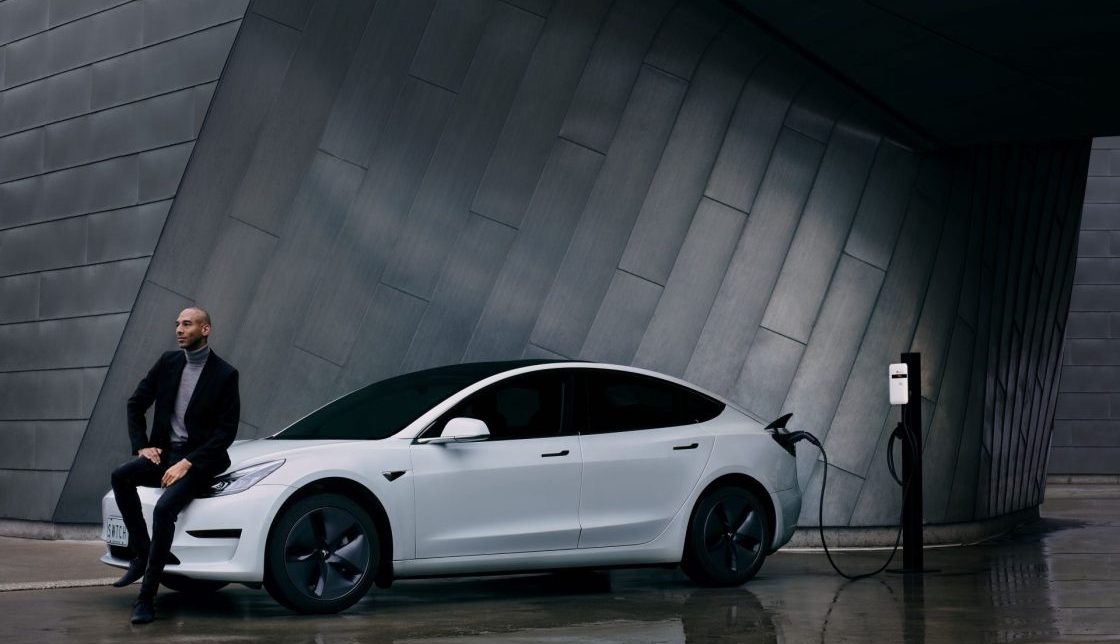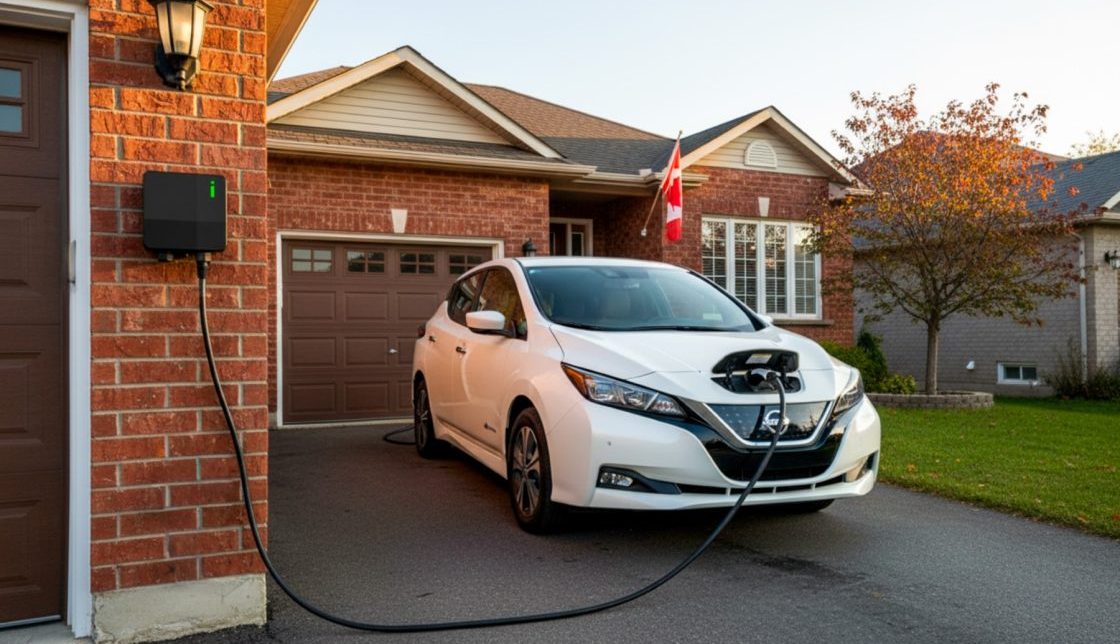Understanding EV charging-as-a-service (CaaS): EV charging made more accessible
Each year, more EVs hit the roads. Each year, more property owners feel increased pressure to enhance tenant and customer satisfaction by installing EV charging stations to service some of these new EVs. And yet, often, the costs associated with installing EV charging stations can feel difficult to manage given that they can require significant capital.
The solution? EV charging-as-a-service, also known as EV CaaS or CaaS.
With charging-as-a-service, the upfront costs associated with electrical upgrades, hardware, and installation all go away. Instead, EV CaaS customers pay a simple monthly fee for each charger they want to have on their property.
Here’s what you need to know about this model and whether it’s right for you.
What is EV charging-as-a-service (CaaS)?
EV charging-as-a-service, or EV CaaS, is a model for acquiring and installing EV charging stations without the need for large upfront capital expenditures.
With EV CaaS, the hardware and software, as well as the costs of installation and any necessary electrical upgrades to make the charging stations work, are all wrapped up into an ongoing monthly payment that will be contracted to last for a period of some number of years.
The precise price, length of duration of a CaaS agreement, and some terms can change depending on the solutions provider and on the property where the chargers are to be installed. A new development with excess electrical capacity, for example, will likely have a lower rate than an older property in need of upgrades that have to be accounted for in the CaaS contract.
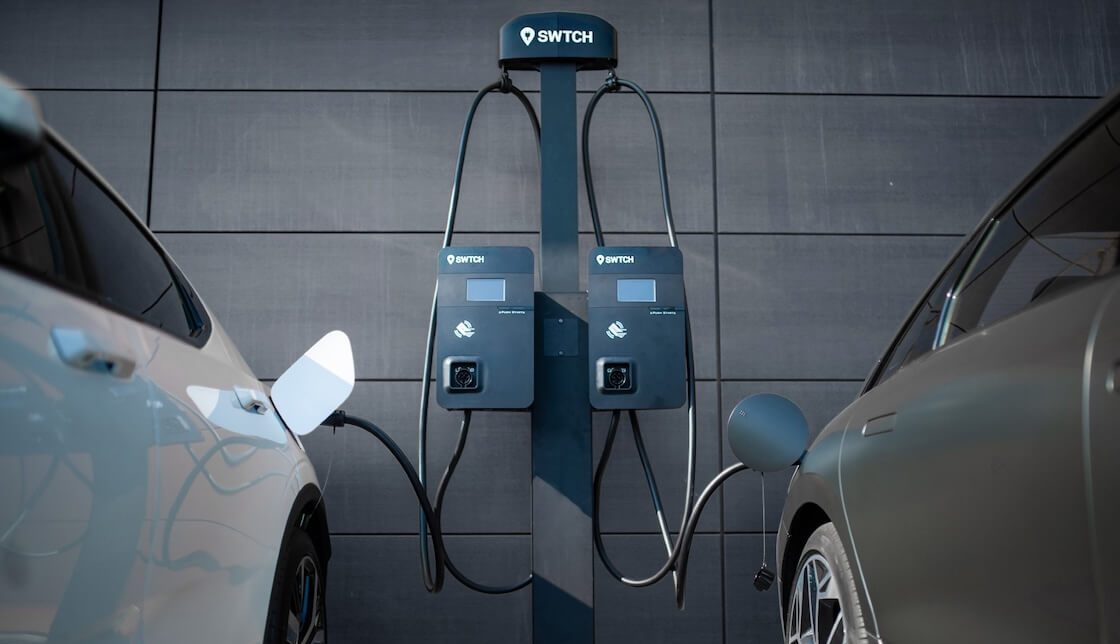
Key Benefits of EV CaaS
While it’s not inherently better to opt for an EV CaaS payment model vs. an outright purchase, there are a few benefits worthy of consideration.
EV charging-as-a-service has no upfront costs
A typical EV charging project for commercial, multifamily, or institutional properties will come with an upfront cost measured in the tens or hundreds of thousands of dollars. With a charging-as-a-service arrangement, however, there is no upfront cost. Instead, all the expenses related to upgrades, installation, hardware, and software, along with ongoing costs like maintenance and software licensing, are added together and divided into monthly payments that last the length of your service agreement.
For property owners who want to install EV charging but don’t have the budget flexibility—or possibly the desire—to pay the bulk of the costs upfront, a CaaS arrangement can be an incredible option.
EV charging-as-a-service is still eligible for incentives and rebates
Though the manner in which you’re paying for the charging stations is different, chargers acquired through an EV CaaS agreement will still be eligible for most, if not all, incentive and rebate programs offered by federal, state, and provincial governments, as well as by utilities.
For many of the programs, the application can even be completed by the solutions provider you partner with, resulting in a lower monthly cost for you as the funding dollars drive the real cost of the project down.
Get in touch with SWTCH to learn which rebates and incentives your properties are eligible for
EV CaaS can promote operational efficiency
For busy property owners and their teams, installing EV charging is, while typically a necessary and welcome upgrade, another thing to add to an already considerable list of things to do. But charging-as-a-service agreements typically see the solutions provider take on just about every part of the planning, installation, operation, and maintenance of the charging stations (with whatever input and oversight the property owner might like to have).
In other words, EV CaaS makes it easy to get great EV charging at a property with very little input required.
EV CaaS can let you generate revenue from your charging stations
One of the neat things about EV charging is that, fairly unique among amenities, it can generate revenue for property owners who install them. With some solutions providers, like SWTCH, this remains the case even under charging-as-a-service agreements.
In other words, revenue generated through fees charged for each charging session will be delivered back to the property owner, just as they would be if the cost of the chargers and installation were paid for outright.
Note that, with some providers, revenue is either not sent back to the property owner or is subject to a sharing agreement, whereby the solutions provider takes a cut of all the earnings of each charging station included in the agreement. If you do decide to pursue an EV CaaS agreement, be sure to choose your partner carefully so that you get the full value of the charging stations on your property.
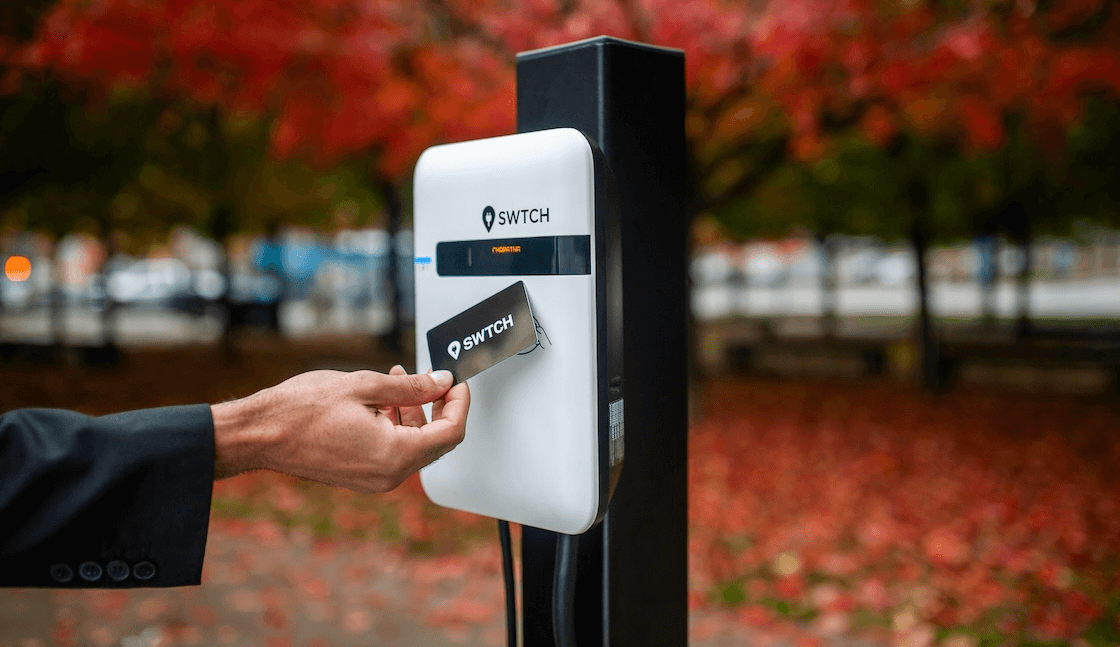
Flexibility to keep going, upgrade, or change providers at the end of your term
If you think about EV charging-as-a-service as being akin to leasing a car, you’ll get a sense of some of the benefits of flexibility that can come along with it.
At the end of the agreement term, the customer for charging-as-a-service will have a few choices for how they can proceed.
- If they love the charging experience, they can renew the agreement and keep things exactly as they are
- If they want to upgrade their hardware, they can create a new agreement that includes the installation of new charging stations, plus any necessary electrical work in the event that the number of charging stations is being expanded
- If they want to purchase the charging stations outright, they can do so, and then continue on with their existing software provider or, provided they have chargers that are part of an open platform, even change software providers if they would like to
- In the unlikely event that they decide they would rather not continue to have EV charging, they can decline to renew the agreement and then have the existing charging stations removed at no cost
Whether your priority is to keep upfront costs lower, to ensure you always have the latest and best hardware, to simply not be locked-in long-term with solution providers, or some combination of the three, an EV CaaS agreement could be the perfect way to get the charging stations you need with the flexibility you crave.
How to evaluate the right CaaS offering for your property
Not all charging-as-a-service agreements are equally good, either in general or for the specific nature of your property and needs of your business. Here’s what you should consider in order to find the right match for you.
Assess the upfront vs ongoing costs of potential agreements
Not all CaaS agreements are identical in their structures. Some will include everything in a series of contracted monthly payments; others will still require some upfront sum to be paid in addition to the ongoing monthly fees. Ensure that the provider you’re looking to work with is able to accommodate your preferred arrangement for paying for the cost of the project.
Make sure you retain your chargers’ revenue
Whether you buy your chargers upfront or have gotten them through a CaaS agreement, you should consider them your chargers—and you should keep the revenue they generate.
If a provider is telling you they’ll take some or all of the revenue generated by your charging stations, that’s a red flag. Seek out providers who make no such requests, and instead are invested in helping you generate the best return on your ongoing investment in EV charging.
Look for a shorter, more flexible charging-as-a-service contract
Some providers seek to lock customers into CaaS agreements for 10+ year agreements. Depending on how you like the rest of the agreement and what your plans are for the property over the next decade, that could be just fine. But, in our opinion, it’s longer than it needs to be.
Ideally, your partners should be able to work out a payment agreement that sees you get chargers through a CaaS agreement for reasonable payments over about a five-year period.
You should also try to ensure that your contract allows for the flexibility that should come with any charging-as-a-service agreement. At the end of your contract, you should have the choice of whether to renew, upgrade, purchase outright, or remove your charging stations, as you see fit. If a supplier can’t guarantee that level of flexibility, you may want to reconsider doing business with them.
Your EV CaaS agreement should include maintenance, service, and support
One of the biggest reasons to go with a charging-as-a-service agreement is to have everything taken care of for you—that should include maintenance, service, and ongoing support.
Is your provider going to handle or arrange inspection visits on a regular schedule? Are they going to step in to handle repairs promptly if ever the need arises? Will they provide ongoing support to drivers who are in need of assistance or to your team if you need help navigating the charging management system?
While a good charging solution will not run into issues frequently, it’s inevitable that something will come up over the life of your agreement. Make sure you’re working with a partner who will just take care of the issue for you, whatever it is.
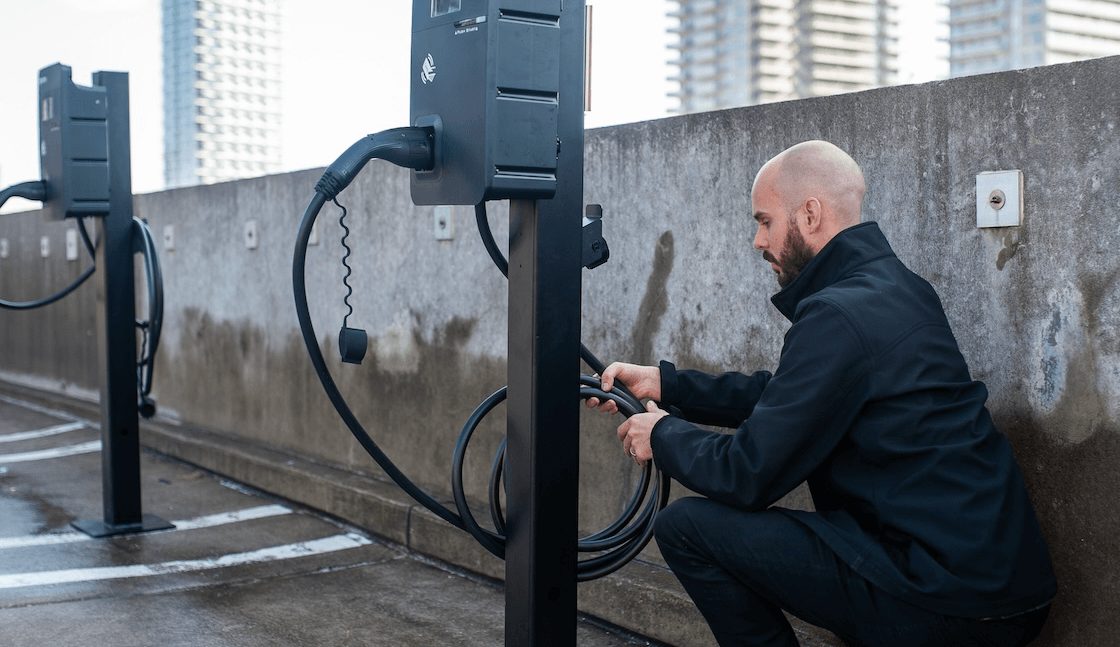
Why the flexibility of charging-as-a-service could be a smart bet
One of the coolest things about the EV and EV charging space is that, in its current incarnation, it’s fairly new. More and more options are coming to the market, more and more charging stations are being installed, and the technology inside cars and charging stations is changing every single year. A recent example is the widespread adoption of the North American Charging Standard (now SAE J3400), which will see virtually all new EVs in North America use the same plug that was pioneered by Tesla.
With such frequent change, though, it’s entirely possible that there will be new demands of charging stations in a few years that some charging stations today will not be able to accommodate (though you can mitigate this risk by selecting charging solutions that are OCPP-certified, as these tend to be at the leading edge of the industry).
By choosing to install charging stations via a charging-as-a-service model, you’ll make it easier to swap out hardware down the line, ensuring you never wind up with equipment that is outdated in some significant way. In a young, fast-moving space like EV charging, it could be a smart way to set your mind at ease by ensuring a degree of future-proofing.

EV charging-as-a-service is a powerful option for organizations to install the charging stations that more tenants and customers desire (and sometimes need) without as significant of upfront costs as seen with typical arrangements.
If you’re curious about whether EV CaaS could work for you, it’s well worth investigating your options, with special emphasis on finding flexible, efficient agreements that allow you to preserve all the revenue your charging stations generate.
To learn more about SWTCH’s charging-as-a-service offering, reach out to us today!
Written by Rob Côté
Marketing Communications Manager at SWTCH

